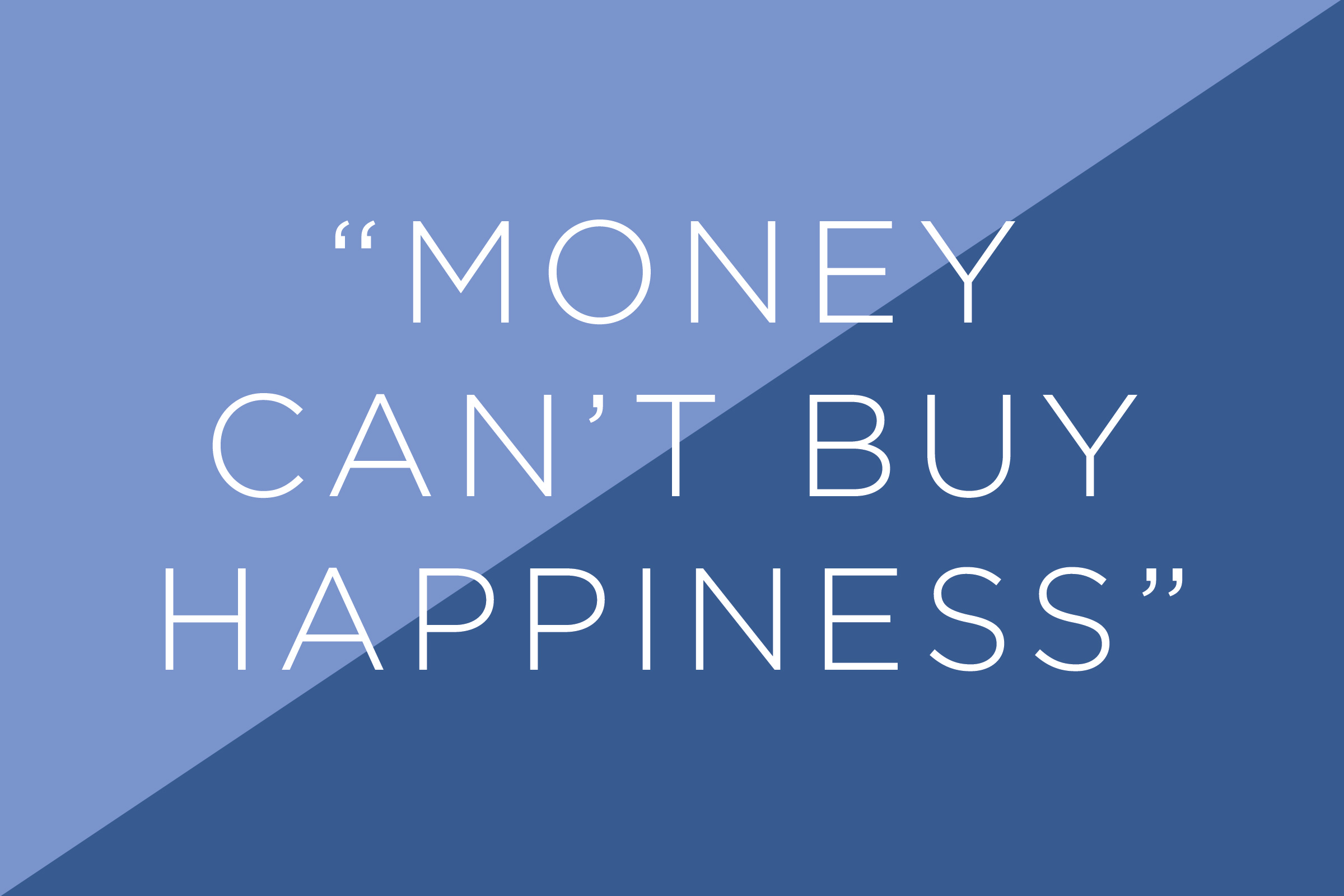
This article looks at the role of limiting beliefs on Happiness.
What is a 'limiting' belief?
Have you ever been in a situation where you feel you 'should' be happy but you're not? Often the reason for this is a belief that 'I should be happy about this' or it may be one of many other kinds of beliefs that actually 'limit' your happiness.
A belief is any idea that you hold to be true, even if it is actually not true. If you are not happy then this belief is actually 'limiting' you being happy for some reason.
Most people have a system of values, which are things that are important to them. Their beliefs hang off them like coat hangers on hooks in a closet.
When people are unhappy, it is usually a core value that is not being satisfied, and often it is a conflicting value or belief that is the culprit.
We absorb many beliefs before the age of 7, the age at which we start to think for ourselves. These beliefs usually come from our parents or care-givers and were imparted to us to help us to be safe in the world. At the time they were useful to us, but over time our experience in the world makes them redundant.
Mostly these beliefs are unconscious. We are not aware of them on a daily basis but they play a central role in the way we think, feel and act.
Some common limiting beliefs that may be affecting your Happiness
There is a veritable 'war chest' of beliefs that are held in society today. Some are aphorisms or adages such as:
“Power tends to corrupt, and absolute power corrupts absolutely” (Lord Acton).
Others are built into proverbs such as: "two wrongs don't make a right' or 'no man Is an island'
When we live our lives, we are navigating around these beliefs in order to survive and thrive. A lot of these adages or proverbs are benign in intent.
For example if we take the adage 'good things come to those who wait' we can see a number of aspects:
- The good intention of this saying, is that it is important to be patient and it’s worth the wait.
- However there is also an inbuilt or implied fear - that you have to wait a long time to get what you want.
- This often results in a limiting behaviour such as a feeling of impatience, focusing on the time taken, and not doing something you want simply because it will “take too long”.
Take another example: “No one ever said life is fair.”
- The good intention is that sometimes things seem unfair, but that's okay.
- The conditioned fear is that you will not get what you deserve and there is no justice in the world.
- The potential limiting behaviour would be that you may hold yourself back, feeling like it will not pay off, or you may develop feelings of hopelessness.
Here is a list of common beliefs and sayings that can prevent your happiness. For each one of them, try to determine the following:
- The 'good' intention' - in other words the positive message that is being conveyed.
- The conditioned fear - the fear that arises if you don't obey the saying.
- Potential limiting behaviour: what do you do or don't do that arises from the fear generated above.

List of 10 Sayings (Limiting Beliefs)
- “Money is the root of all evil.”
- “Finish your plate. There are starving people in the world.”
- “Money doesn’t grow on trees.”
- “Don’t burn your bridges.”
- “No pain no gain.”
- “Life is hard.”
- “Honour thy mother and father.”
- “You have to pay your dues.”
- “Speak only when spoken to.”
- “Children are meant to be seen and not heard.”
Can you think of any more?
Which of the above were you conditioned to believe?

Further Questions About Your Limiting Beliefs
For the above sayings and limiting beliefs, which did you learn when you were young? Can you think of any others - if so, apply the 3 criteria to them above.
Now for the above 10 sayings or beliefs, or at least the ones that you believe, ask yourself some questions as below, taking your time over each one:
- Is it true?
- Can you absolutely know that it’s true?
- How do you react when you think that thought?
- Who would you be without the thought?
- What if (belief) was not true?
- How would you react if it were not true?
- Who would you be if it were not true?
Now Here's The Good News!
The good news about limiting beliefs is that they can be changed! There are three ways to do this, and all are called 'Reframing'. Metaphorically, we all see life through a particular 'frame' - some people see a glass half full (pessimists), others see a glass half empty (optimists).
When we reframe things, we give it a perspective that serves us better and we assign a more productive meaning to it. Regrettably reframing can be used in the opposite direction, particularly in political discourse. For that please check out this short video from PragerU.
3 Ways To Reframe Your Limiting Beliefs
1. Change 'Have to' vs 'Get to'
One way to reframe a belief is to change your 'modal operator' filter (metaprogram) from 'Have To' to 'Get To'. For more information on this filter, check out this article from the Internal Map Of Reality series of articles.
For instance, change “I have to go to work" to “I get to go to work." If you choose to see the possibilities of going to work (eg, have money coming in) versus the necessities (prevent yourself getting broke), you will be more motivated to go to work and feel happier.
Try and think of 3 examples of the above for yourself.
2. Ask: 'How Can I'
Secondly, rather than focus on 'I can't...' change it to 'How Can I...?' By framing things in the negative, you are instructing your brain to close off avenues to possibility. Ask questions of yourself such as:
- How can I make more money this year?
- How can I be a better husband/wife?
- How can I contribute more to my charity/church etc?
By doing the above you will open your mind to possibilities.
3. Change Your 'What If'
Many people will use the 'what if' question negatively - for instance, 'what if I fail' or 'what if the stock market crashes'. If you are thinking this way, you will be perpetually fearful of negative consequences and most likely you will experience negative things.
In contrast, think about 'What If It All Goes Right?' or 'What If I Succeed?'- actually this is the title of a book by Mendhi Audlin (get it here: https://amzn.to/2OJwaiP).
In Conclusion
Limiting Beliefs can seriously impact your happiness. They can stop you from achieving your full potential in life and really reduce the quality of life.
Apply the techniques above to change and eliminate your limiting beliefs and your life will radically change for the better.
Coming Next: Ego And Identity
Previous Article in this series: Desire And Envy
Free Coaching Session!
Often just reading a blog post is not enough to make deep changes in your life.
Why not sign up for a free 'Happiness' coaching session with me? Please visit this page for more information.

